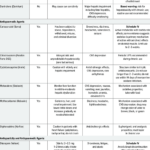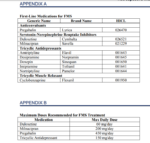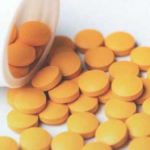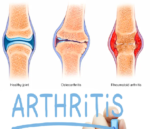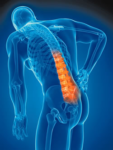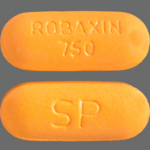NO.
You can not buy Carisoprodol ( Generic Soma ) online because it is a controlled substance! Buying and selling controlled substance online are illegal.
If you want to buy Soma, we suggest you to buy other Muscle Relaxants online such as Methocarbamol (Robaxin), cyclobenzaprine (Flexeril), Tizanidine (Zanaflex).
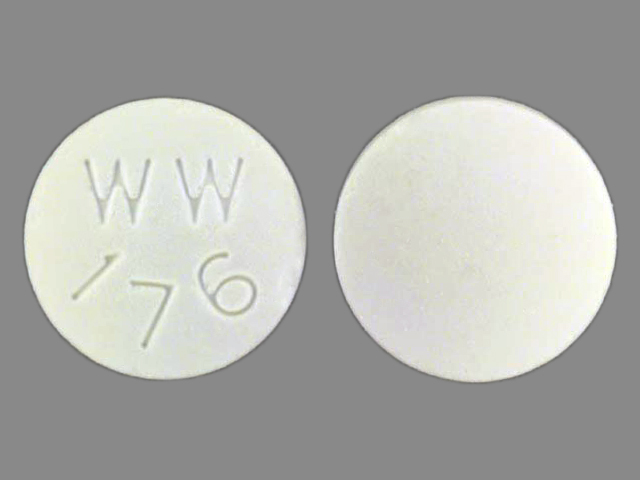
What is Soma ?
Why is carisoprodol prescribed?
Carisoprodol, a muscle relaxant, is used with rest, physical therapy, and other measures to relax muscles and relieve pain and discomfort caused by strains, sprains, and other muscle injuries.
How should carisoprodol be used?
Carisoprodol comes as a tablet to take by mouth. It usually is taken three times daily and at bedtime. It may be taken with or without food. Follow the directions on your prescription label carefully, and ask your doctor or pharmacist to explain any part you do not understand. Take carisoprodol exactly as directed. Do not take more or less of it or take it more often than prescribed by your doctor.
Other uses for carisoprodol
This medication is sometimes prescribed for other uses; ask your doctor or pharmacist for more information.
What special precautions should I follow?
Before taking carisoprodol,
- tell your doctor and pharmacist if you are allergic to carisoprodol, meprobamate (Equanil, Meprospan, Miltown, Neuramate), any other medications, or any of the ingredients in carisoprodol tablets. Ask your pharmacist for a list of the ingredients.
- tell your doctor and pharmacist what prescription and nonprescription medications you are taking, especially medications for allergies, coughs, or colds; muscle relaxants; sedatives; sleeping pills; tranquilizers; and vitamins.
- tell your doctor if you have or have ever had kidney or liver disease.
- tell your doctor if you are pregnant, plan to become pregnant, or are breastfeeding. If you become pregnant while taking carisoprodol, call your doctor.
- talk to your doctor about the risks and benefits of taking carisoprodol if you are 65 years of age or older. Older adults should not usually take carisoprodol because it is not as safe or effective as other medications that can be used to treat the same condition.
- you should know that this drug may make you drowsy. Do not drive a car or operate machinery until you know how carisoprodol affects you.
- remember that alcohol can add to the drowsiness caused by this drug.
What special dietary instructions should I follow?
Carisoprodol may cause an upset stomach. Take carisoprodol with food or milk.
What should I do if I forget a dose?
Take the missed dose as soon as you remember it. However, if it is almost time for the next dose, skip the missed dose and continue your regular dosing schedule. Do not take a double dose to make up for a missed one.
What side effects can this medication cause?
Carisoprodol may cause side effects. Tell your doctor if any of these symptoms are severe or do not go away:
- drowsiness
- dizziness
- clumsiness
- headache
- fast heart rate
- upset stomach
- vomiting
- skin rash
If you experience any of the following symptoms, call your doctor immediately:
- difficulty breathing
- fever
- weakness
- burning in the eyes
If you experience a serious side effect, you or your doctor may send a report to the Food and Drug Administration’s (FDA) MedWatch Adverse Event Reporting program online (http://www.fda.gov/Safety/MedWatch) or by phone (1-800-332-1088).
What should I know about storage and disposal of this medication?
Keep this medication in the container it came in, tightly closed, and out of reach of children. Store it at room temperature and away from moisture and heat (not in the bathroom).
It is important to keep all medication out of sight and reach of children as many containers (such as weekly pill minders and those for eye drops, creams, patches, and inhalers) are not child-resistant and young children can open them easily. To protect young children from poisoning, always lock safety caps and immediately place the medication in a safe location – one that is up and away and out of their sight and reach. http://www.upandaway.org
Unneeded medications should be disposed of in special ways to ensure that pets, children, and other people cannot consume them. However, you should not flush this medication down the toilet. Instead, the best way to dispose of your medication is through a medicine take-back program. Talk to your pharmacist or contact your local garbage/recycling department to learn about take-back programs in your community. See the FDA’s Safe Disposal of Medicines website (http://goo.gl/c4Rm4p) for more information if you do not have access to a take-back program.
In case of emergency/overdose
In case of overdose, call the poison control helpline at 1-800-222-1222. Information is also available online at https://www.poisonhelp.org/help. If the victim has collapsed, had a seizure, has trouble breathing, or can’t be awakened, immediately call emergency services at 911.
What other information should I know?
Keep all appointments with your doctor.
Do not let anyone else take your medication. Ask your pharmacist any questions you have about refilling your prescription.
It is important for you to keep a written list of all of the prescription and nonprescription (over-the-counter) medicines you are taking, as well as any products such as vitamins, minerals, or other dietary supplements. You should bring this list with you each time you visit a doctor or if you are admitted to a hospital. It is also important information to carry with you in case of emergencies.
Brand names
- Rela®¶
- Soma®
¶This branded product is no longer on the market. Generic alternatives may be available.
Last Revised – 10/15/2018
What is the mostly used Muscle Relaxants ?
Your first-line treatment will still be over-the-counter pain relievers like acetaminophen (Tylenol) and non-steroidal anti-inflammatory drugs (NSAIDs) like ibuprofen (Advil) and naproxen (Aleve). They work better for neck and back pain than muscle relaxants, but there may be a benefit to taking them together, especially at night. Research shows that a muscle relaxant added to acetaminophen or an NSAID works better than either alone.
Now, let’s compare 9 popular muscle relaxants. How well do they work and what are their side effects? Oh, and are they affordable?
1) Carisoprodol (Generic Soma )
Carisoprodol (Soma) is a Schedule IV drug (similar to benzodiazepines Ativan, Valium, and Xanax) and has the potential for being abused. For this reason, you should not use it if you have a history of substance abuse.
Many believe that carisoprodol should be phased out as a muscle relaxant in favor of much better options. If prescribed, you should only use it for short periods of 2 to 3 weeks due to lack of evidence for effectiveness with longer use. It may cause drowsiness and dizziness, and it should not be used in folks over 65.
2) Methocarbamol
Methocarbamol (Robaxin) is a well-studied medication that treats back pain. It’s also inexpensive and relatively less sedating than other options. In recent studies where it was used for up to 8 days, 44% of folks that took methocarbamol had complete pain relief (compared to 18% who took nothing) — and that was without any serious side effects.
Taken as needed, 1500 mg every 6 to 8 hours is a cheap and well-tolerated option for sufferers of acute neck and back pain. Think of trying this first, as it is less sedating than other options, like cyclobenzaprine and carisoprodol.
3) Cyclobenzaprine
At the standard dose of 10 mg to 30 mg a day, cyclobenzaprine (Flexeril) will make you sleepy. If you use it during the day, you’ll want to break your 10 mg tab in half and take 5 mg to lessen the drowsiness. Interestingly, 5 mg three times a day has been shown in studies to work as well as 10 mg taken 3 times a day.
Cyclobenzaprine is a reasonable first choice because it’s a cheap generic, but the sedation side effect limits its use during the day. It may also cause more dry mouth, especially in older folks. If this is a concern, consider a better non-sedating option.
4) Metaxalone
Taken as 800 mg tablets 3 to 4 times a day, metaxalone (Skelaxin) has the fewest reported side effects and lowest sedation potential of the muscle relaxants based on clinical studies. Simply put, it is the best-tolerated of the muscle relaxants.
Metaxolone is a generic alternative for the brand drug Skelaxin, but it is still pricey. Insurance companies don’t like to cover it because there are cheaper alternatives. Having said that, it works as well as cyclobenzaprine and carisoprodol with fewer side effects and less sedation—so paying cash may be worth it.
5) Tizanidine
Tizanidine (Zanaflex) is often used for spasticity in patients with multiple sclerosis or cerebral palsy. Spasticity is where the muscles undergo continuous contraction, which leads to tightness and stiffness. In head-to-head studies with Baclofen for those conditions, tizanidine tends to have fewer side effects — but they both work just as well. This is not a first-line choice for acute neck or back muscle pain, though.
6) Baclofen
Similar to tizanidine, Baclofen is primarily used for spasticity in spinal cord injury patients or those with multiple sclerosis. Up to 20% of folks taking it have drowsiness, and there are better options for neck and back muscle pain. Also not a first choice.
7) Oxazepam and diazepam
Benzodiazepine medications like oxazepam and diazepam (Valium) are sometimes prescribed as muscle relaxants. However, these really aren’t recommended because they don’t work well, are sedating, and can be habit-forming. Avoid benzodiazepines for neck and back muscle pain because there are much better options.
8) Chlorzoxazone
Chlorzoxazone (Lorzone) is not well-studied for acute low back and neck pain in adults. And when investigated for pain after spine surgery, it wasn’t found to be effective. Chlorzoxazone has also been reported as a rare cause of acute liver toxicity. Don’t choose this until you’ve exhausted all other options.
9) Orphenadrine
For neck and back pain in adults, the first 4 medications on this list work better than orphenadrine (Norflex), so save this as another last resort in the event the others don’t work. It just hasn’t been well studied for this purpose.
What is the benefits of taking Muscle Relaxants ?
Neuromuscular blockers and spasmolytic relaxers are the two types of muscle relaxers used in today’s hospital and clinics for different kinds of pain and muscle relief.
Neuromuscular blockers are used mostly for surgeries to quell pain, while spasmolytics are used primarily as relaxants for tension muscle and spasms relief.
Most medications that fall under these two categories are available on the market through prescription only, to relief skeletal muscle pains and residual spasms.
List of muscle relaxers, their benefits and possible users:
People who suffer from arthritis normally use muscle relaxers in order to get more restful sleep. Rheumatologists order muscle relaxers to help force stage four sleeps so that people can feel good and refreshed when they wake-up in the morning. Those who suffer from fibromyalgia can benefit from taking muscle relaxers because it can help relieve body aches, fatigue and stiffness which could lead to poor quality sleep. Muscle relaxers works in the middle; acting to control central nervous system.
It can work as a substitute to antidepressant to individuals who is suffering from anxiety disorders. Individuals who suffer from serious tension headaches should also gain from this list of muscle relaxants, mostly if the headache is caused by tensions around the head and neck.
Other ways that muscle relaxers are used:
– Use for severe pain relieve in hospital surgery rooms and other emergency situations to induce paralysis
– Antispasmodic
– Helps reduce the symptoms for fibromyalgia i.e. body aches, burn out and stiffness
– Reduce neck and back pain
– Used for the treatment of acute tension headaches
– Help alleviate pain associated with MPS or Myofascial pain syndrome
– Induce stage 4 sleep.
What Should You Know Before You Buy Carisoprodol Online ?
Before buying Carisoprodol or any medication online, it’s essential to consider several important factors to ensure your safety and the legitimacy of the purchase. Carisoprodol is a muscle relaxant typically prescribed for short-term relief of muscle pain and discomfort. Here are some things to know and consider before purchasing Carisoprodol online:
- Prescription Requirement: In many countries, Carisoprodol is a prescription-only medication. You should have a valid prescription from a licensed healthcare provider before attempting to purchase it online. Be cautious of websites that offer to sell Carisoprodol without a prescription, as this may be illegal and unsafe.
- Legitimacy of the Online Pharmacy: Choose a reputable online pharmacy. Look for pharmacies that are licensed and regulated by the appropriate government authorities in their country of operation. Verify the pharmacy’s credentials and check for customer reviews and ratings.
- Verify the Medication’s Authenticity: Ensure that the Carisoprodol you are purchasing is genuine and not counterfeit. Be cautious of unbelievably low prices, as they may indicate a fraudulent website. Look for pharmacies that provide detailed information about the medication, including its brand name, dosage, and manufacturer.
- Payment Security: Use secure payment methods to protect your personal and financial information. Reputable online pharmacies should offer secure payment options, such as credit cards or trusted online payment services.
- Privacy and Data Security: Ensure that the online pharmacy has a privacy policy in place to protect your personal and medical information. Your information should be handled confidentially and not shared with unauthorized parties.
- Customer Support: A reliable online pharmacy should have a customer support team that you can contact for assistance or inquiries. Verify that they have valid contact information, such as a phone number or email address.
- Shipping and Delivery: Understand the pharmacy’s shipping policies, including delivery times and shipping costs. Ensure that they offer shipping options that are convenient for you and check if they provide tracking information for your order.
- Potential Risks and Side Effects: Familiarize yourself with the potential risks and side effects associated with Carisoprodol. Discuss any concerns or questions with your healthcare provider before purchasing the medication.
- Drug Interactions and Allergies: Inform your healthcare provider and the online pharmacy about any other medications you are taking, as well as any known allergies, to avoid potential drug interactions or adverse reactions.
- Legal and Regulatory Considerations: Be aware of the laws and regulations regarding the purchase of prescription medications in your country. Some countries have strict regulations on importing prescription drugs, so ensure that you are compliant with local laws.
Purchasing medication online can be convenient, but it also comes with risks if not done safely and responsibly. Always prioritize your health and safety by following these guidelines and consulting with a healthcare professional before starting any new medication.
What Are the Side Effects of Taking Carisoprodol ?
Carisoprodol is a muscle relaxant medication commonly used for the short-term treatment of muscle pain and discomfort. Like all medications, it can have side effects. It’s essential to be aware of potential side effects and discuss them with your healthcare provider before starting Carisoprodol. Common side effects of Carisoprodol may include:
- Drowsiness: One of the most common side effects of Carisoprodol is drowsiness or sedation. This can impair your ability to drive or operate machinery safely, so it’s important to avoid such activities until you know how the medication affects you.
- Dizziness: Some people may experience dizziness or lightheadedness while taking Carisoprodol. This effect can be exacerbated when you stand up quickly from a sitting or lying position.
- Headache: Headaches can occur as a side effect of Carisoprodol.
- Dry Mouth: Carisoprodol may cause a dry mouth, which can be relieved by staying hydrated and using sugar-free gum or candy.
- Upset Stomach: Nausea and gastrointestinal discomfort are possible side effects. Taking Carisoprodol with food or milk may help alleviate stomach upset.
- Blurred Vision: Some individuals may experience blurred vision while taking this medication.
- Allergic Reactions: Although rare, allergic reactions to Carisoprodol can occur. Seek medical attention immediately if you experience symptoms like rash, itching, swelling, severe dizziness, or difficulty breathing.
- Blood Pressure Changes: Carisoprodol can affect blood pressure, causing either a decrease or an increase in blood pressure. Monitor your blood pressure regularly if you are taking this medication.
- Withdrawal Symptoms: Prolonged use of Carisoprodol, especially at higher doses, can lead to physical dependence. If you abruptly stop taking the medication, you may experience withdrawal symptoms, including anxiety, tremors, muscle twitching, and insomnia. Tapering off the medication under medical supervision is typically recommended to avoid withdrawal.
- CNS Depression: Carisoprodol can depress the central nervous system (CNS), potentially leading to respiratory depression, especially when taken with other medications that also depress the CNS, such as opioids.
It’s important to note that this list is not exhaustive, and individual reactions to medications can vary. Some people may experience side effects not listed here, while others may not experience any side effects at all.
If you experience severe or persistent side effects while taking Carisoprodol, contact your healthcare provider immediately. Additionally, inform your healthcare provider of any other medications you are taking, as Carisoprodol can interact with certain drugs and may have different side effects when combined with them. Your healthcare provider can help you weigh the benefits and risks of taking Carisoprodol and determine if it is an appropriate treatment for your condition.
The Interactions of Carisoprodol
Carisoprodol, a muscle relaxant, can interact with other medications and substances, potentially leading to adverse effects or reduced effectiveness. It’s crucial to inform your healthcare provider about all the medications, supplements, and substances you are taking before starting Carisoprodol. Here are some significant drug interactions associated with Carisoprodol:
- Central Nervous System (CNS) Depressants: Carisoprodol can enhance the sedative effects of other CNS depressants, including alcohol, opioids, benzodiazepines (such as diazepam or alprazolam), and certain sleep medications. Combining Carisoprodol with these substances can lead to increased drowsiness, impaired coordination, and respiratory depression. This combination can be dangerous and even life-threatening.
- Antidepressants: Some antidepressant medications, particularly selective serotonin reuptake inhibitors (SSRIs) and serotonin-norepinephrine reuptake inhibitors (SNRIs), can increase the risk of serotonin syndrome when used in conjunction with Carisoprodol. Serotonin syndrome is a rare but serious condition characterized by symptoms like agitation, confusion, rapid heart rate, high blood pressure, dilated pupils, and muscle rigidity.
- Tricyclic Antidepressants (TCAs): The concurrent use of Carisoprodol with TCAs can increase the risk of drowsiness, dizziness, and impaired cognitive and motor function.
- Antihistamines: Certain antihistamines with sedative effects, such as diphenhydramine, can potentiate the drowsiness caused by Carisoprodol.
- CYP2C19 Inhibitors: Carisoprodol is metabolized in the liver by the enzyme CYP2C19. Drugs that inhibit CYP2C19 can increase the concentration of Carisoprodol in the bloodstream, potentially leading to enhanced sedation and other side effects. Common CYP2C19 inhibitors include fluvoxamine, omeprazole, and some antifungal medications.
- CYP2C19 Inducers: Drugs that induce CYP2C19 can decrease the effectiveness of Carisoprodol by increasing its metabolism and reducing its concentration in the bloodstream. Rifampin is an example of a CYP2C19 inducer.
- Anticoagulants: The combination of Carisoprodol with anticoagulants like warfarin may increase the risk of bleeding. Monitoring of blood clotting parameters may be necessary if these medications are used together.
- Substances with Potential for Abuse: Carisoprodol has the potential for abuse and addiction, particularly when used inappropriately or with other substances of abuse. It is classified as a Schedule IV controlled substance in the United States due to its potential for abuse.
Pain Medications, Pain Relief, and Pain Management
